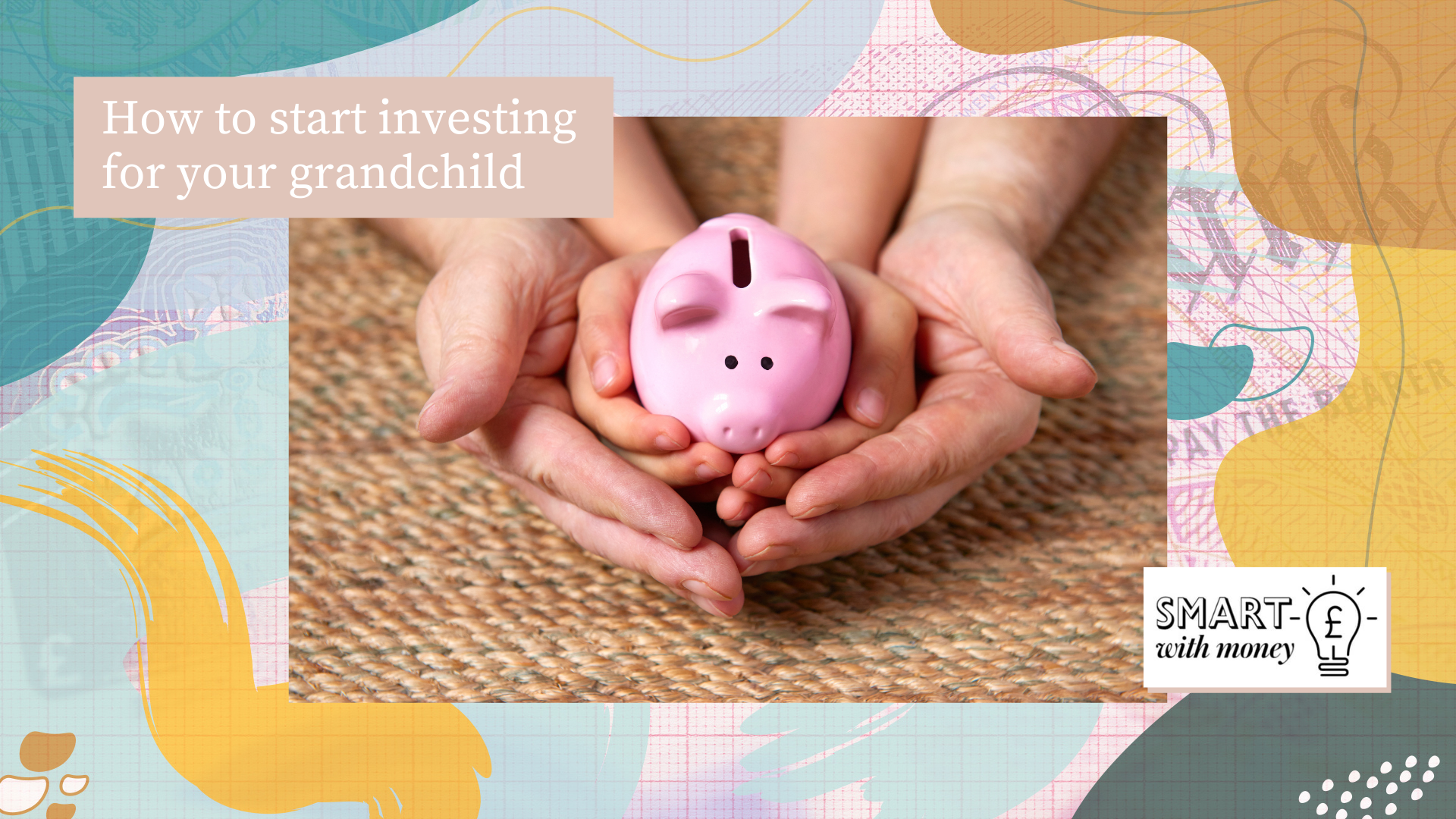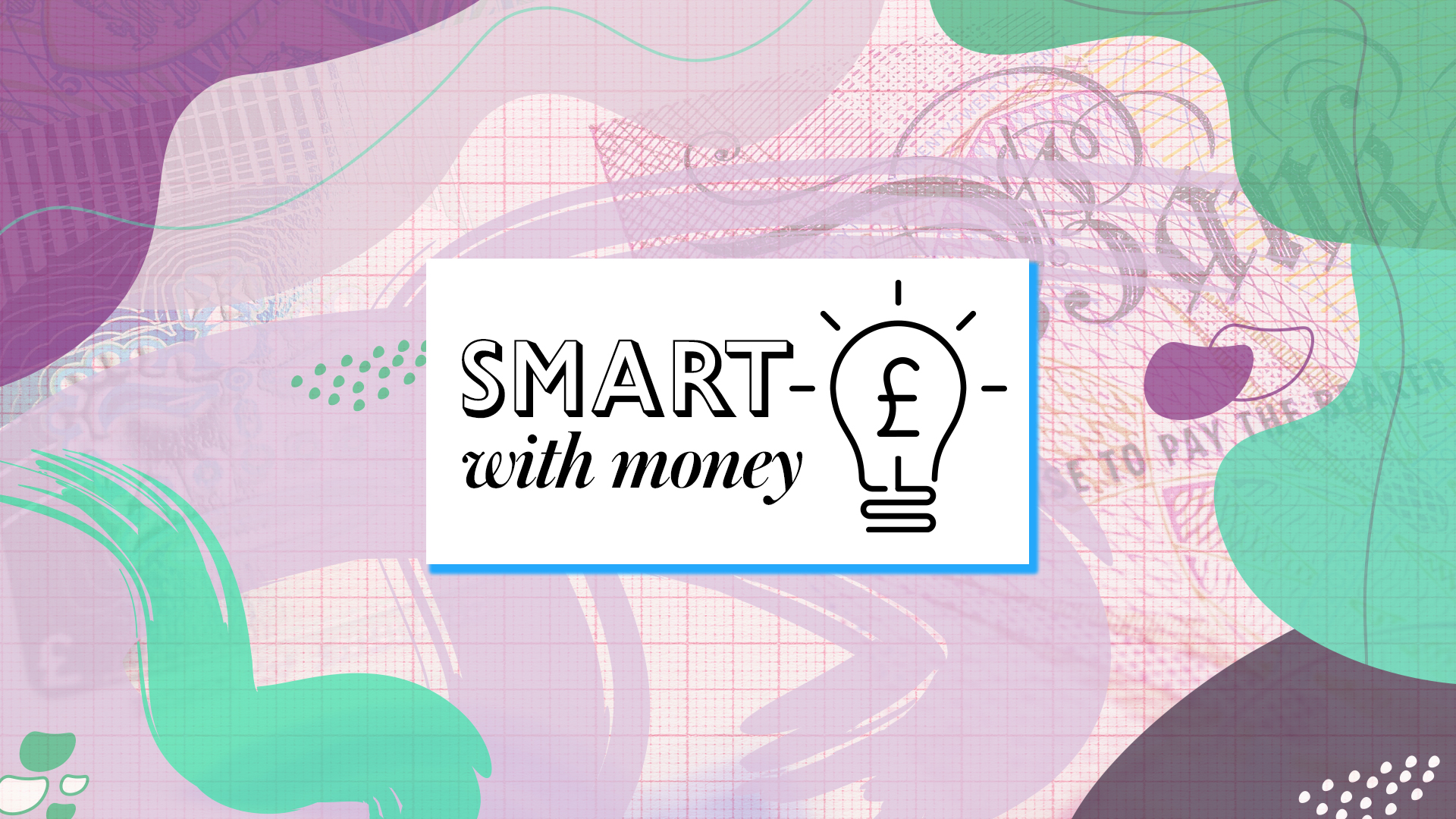How to start investing for your grandchildren
Investing for your grandchildren is a great way to build a savings pot for their adult life

Investing for grandchildren can provide them with a financial boost at a time when they most need it, for example to pay their university fees, buy a first home or even a pension.
It’s also a useful tool to teach children about money. “Introducing children to the concept of investing is a brilliant way to set them up for the future. Showing them how their money is growing year on year will teach children the benefits of regular investing and could kick-start a positive savings habit,” says Maike Currie, investment director at Fidelity International.
There are several options available, from junior ISAs and investment accounts to pensions and gifting shares.
Investing for kids can be very tax-efficient. Their savings could grow tax-free or could get topped up with free cash from the Government, and whatever money you set aside could potentially lower the inheritance tax bill for your loved ones when you die.
If you're new to investing we have a great guide on investing for beginners which will help you make the right choices for your personal finances. Here we explain the different ways to invest for a child or grandchild and get them off to a flying start in life.
Junior ISA
Smart With Money

Smart With Money is our dedicated money channel created to give you expert, easily digestible information to help you make the most out of your money.
What is it? Launched in November 2011, junior ISAs enable families to invest money for their children tax-free, with the investment locked away until the child turns 18. The maximum that can be paid in by all friends and family during 2021-22 is £9,000. This is on top of your own £20,000 adult ISA allowance. You can choose between a cash junior ISA, and a stocks and shares version.
According to the latest figures from HMRC, more than one million people paid money into junior ISAs in 2019-20, with 706,000 of them putting money into a cash account and 316,000 paying into stocks and shares accounts.
Sign up for the woman&home newsletter
Sign up to our free daily email for the latest royal and entertainment news, interesting opinion, expert advice on styling and beauty trends, and no-nonsense guides to the health and wellness questions you want answered.
Pros: A junior ISA is a fantastic tool to get a child interested in money and investing. At age 16, the teenager is allowed to manage the account, so they can choose the investments or switch to a different provider. Discussing the merits of investing ethically or in large firms like Amazon or Adidas, for example, is a useful way to engage them with their junior ISA, teach them about finance and get them thinking about how they’d like to spend or save the money in the future.
Cons: Bear in mind that a junior ISA automatically passes to the child on their 18th birthday, and they can spend the money as they please. If you are hoping they will use the money in a specific way, you will need to have this conversation!
Should you choose a cash junior ISA or a stocks and shares version?
Choosing a cash junior ISA over the investment version could mean the child misses out on thousands of pounds of returns. This is because over long time frames, investing in the stock market nearly always outperforms cash. If you’re investing for a newborn baby, there’s 18 years for the money to grow before it can be touched.
A study of the past decade by Scottish Friendly and the Centre for Economics and Business Research reveals that families who saved into a cash junior ISA have lost out on up to £32,300. The study assumes the maximum allowance is saved each tax year, and compares it to investing in the MSCI World Index fund within a stocks and shares junior ISA. If you’ve saved into the MSCI fund, which invests in global stock markets, the child’s junior ISA would be worth £84,500. If you’d put the same amount of money in a cash junior ISA, it would be worth just £52,200.
“Everyone wants the best for their child when it comes to building a nest egg so it’s understandable that many of us are tempted by a more cautious approach,” notes Jill Mackay, head of marketing at Scottish Friendly. However, she adds that “investing isn’t just for the wealthy and well-advised” and by investing even small amounts you could build a bigger pot for a child or grandchild.
Investment account
What is it? An investment account or dealing account, which is normally set up through a bare trust. These are different to stocks and shares junior ISAs, and have their own pros and cons. Unlike a junior ISA, it is not tax-free. However, you can use the child’s annual income tax and capital gains tax allowances, which can significantly reduce the tax (in some cases to zero). Children can 'earn' up to £18,570 per year before they incur tax and also have a Capital Gains Tax allowance of £12,300.
Pros: The accounts are more flexible than junior ISAs. A grandparent or parent can normally open one (with a junior ISA, the parent or guardian has to open it). So, a grandmother could open a child’s investment account. Bare trusts allow withdrawals at any age, as long as it is for the beneficiary’s (child’s) benefit, so grandparents could invest and make withdrawals to pay school fees, for example. There are no limits on how much can be paid into the account each year.
At age 18 (or 16 in Scotland), the child is entitled to the money. However, it does not automatically transfer to the child—as with a junior ISA—so the grandparent could continue managing the account.
Cons: There’s not much choice when it comes to children’s investment accounts. Only a handful of providers offer them, such as AJ Bell Youinvest, Brewin Dolphin and Netwealth.
Junior pension
What is it? You may associate saving into a pension with later life, or perhaps with workers paying part of their pay packet into a pension savings scheme, but did you know pensions can also be opened for babies and children?
Laura Suter, head of personal finance at AJ Bell, comments, “While most sleep-deprived parents of a newborn won’t be thinking about setting up a pension for their child, grandparents may decide to get a head start on saving for their grandchildren. They don’t need to start big, as you can put as little as £25 a month into a junior self-invested personal pension (SIPP) and build up from there.”
Pros: Not only are they tax-free, but the government will also add 20% tax relief, essentially a cash bonus.
The maximum amount that can be paid into a child’s pension is £2,880 a year, which is topped up to £3,600 thanks to tax relief. If this amount was contributed every year from birth, the child could have a nest egg of over £96,000 by the time they turn 18, according to calculations by AJ Bell. This assumes 4% annual growth.
If the money is left and no more is added to the pot, it could grow to a staggering £443,000 by age 57. This is based on contributions of just £51,840.
Saving into a pension for a child is becoming more popular. AJ Bell Youinvest has seen 32% growth in the number of junior SIPPs opened in 2020 compared to 2019. The average account has about £10,000 in it.
Cons: Bear in mind that a pension is a long-term investment. Currently, it can’t be accessed until age 57, and this age could rise in the future. So the child won’t be able to use the money for other things, like a house deposit or getting married.
On the flipside, the pension could give a very welcome financial boost to your child’s retirement, and you have peace of mind that the money won’t be squandered before then.
When the child reaches 18, they can continue to make pension contributions, starting a good habit for the rest of their life.
Gifting shares
What is it? A share allows your child to own a small part of a company. You could maybe buy them a share of a company or brand that they love.
Pros: Passing on an investment like shares to a child can be a good way to give them a financial gift and if a company does well, it could pay dividends for years to come. It can also help teach them about the stock market.
Cons: Any shares handed to a child or grandchild are classed as a “disposal” by the taxman, which means that if the current value of the shares is higher than when you bought them, it could be liable for capital gains tax.
If the gain is above your capital gains allowance of £12,300, or if you’ve already used this tax-free limit this tax year, you’ll pay 10% or 20%, depending on your income.
You may need to be mindful of income tax, too. Children can earn up to £100 a year free of income tax—say, from a savings account or share dividends—but anything over this amount could be taxed at the parent’s highest income rate.
However, this is only the case where it is the parent that has gifted the shares. If it is a grandparent or any other relative or friend that has given the child the shares, there is no income tax liability.
Unless you have an emotional attachment to the shares, and want to keep them in the family, it may be better to sell the shares and put the cash into a junior ISA or child’s investment account. With a junior ISA, any growth in the investments will be completely tax-free. And with an investment account you’ll have more control over the money.
Shares are a high-risk investment, and if you are handing over shares in just one company, or a couple of companies, this makes it riskier still. Using a junior ISA or investment account means a more diversified portfolio can be built up for the child, which should lower the risk.
Gifting to reduce inheritance tax
What is it? Gifts to your children or grandchildren could reduce any potential inheritance tax (IHT) they will need to pay after your death.
Pros: The good news is you can give up to £3,000 away each tax year without it being added to your estate for inheritance tax purposes. For example, if you have three grandchildren, you could pay £1,000 into each of their junior ISAs. Gifting investments like shares also counts towards your £3,000 limit.
Cons: Any gifts made above this level will be subject to the seven-year rule, where no IHT is due if you live for seven years after the gift. If you do die within seven years of gifting the money, the tax is on a sliding scale, depending on when you die.
Maike Currie advises keeping a record of the amount and timing of any gifts, so that it’s easier for the person who deals with your estate to work out whether any IHT is due.
Ruth is a contributing editor for The Money Edit and also covers finance for Woman & Home. Ruth is passionate about helping people feel more confident about their finances. She was previously editor of Times Money Mentor, and prior to that was deputy Money editor at The Sunday Times.
A multi-award-winning journalist, Ruth started her career on a pensions magazine at the FT Group, and has also worked at Money Observer and Money Advice Service.
Outside of work, she is a mum to two young children, a magistrate and an NHS volunteer. You can follow Ruth on twitter.